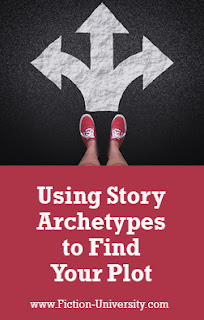Romances don’t usually have a villain, but there is a strong conflict driving the plot.
The romance genre is an odd mix of writing difficulties. On one hand, it’s easy to write because it has a clear structure and set of goals for every story—get two people to fall in love and live happily ever after.
On the other hand, since both protagonists want the same thing, it’s extremely difficult to create conflict—and plot is created by conflict.
Unlike most novels, there's no mustache-twirling antagonist standing between the lovebirds and happiness. And since the protagonists need to come together in the end, you can’t have one defeat the other, or it throws off the balance of power in the relationship and makes for a bad (and unhealthy) romance.
Unlike most novels, there's no mustache-twirling antagonist standing between the lovebirds and happiness. And since the protagonists need to come together in the end, you can’t have one defeat the other, or it throws off the balance of power in the relationship and makes for a bad (and unhealthy) romance.






